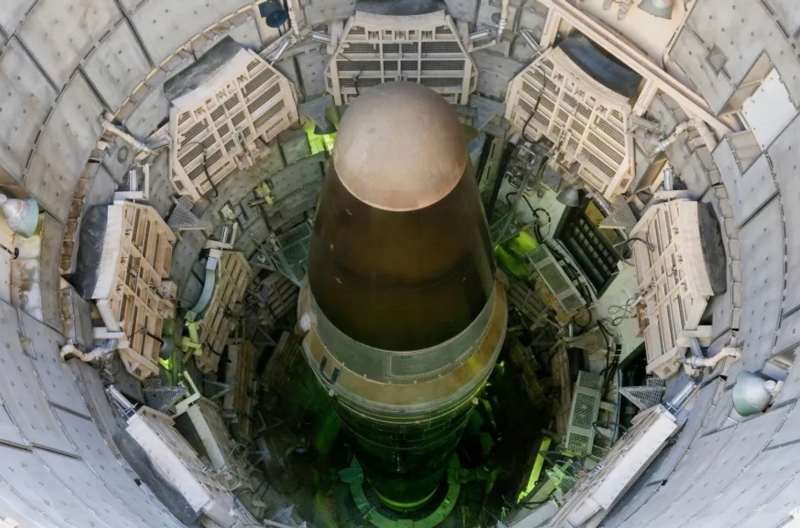Photo: Getty Images
On the evening of Oct. 29, U.S. President Donald Trump announced that he had instructed the Department of Defense to “immediately” begin nuclear weapons testing for the first time since 1992. If Trump’s statement did indeed refer to the resumption of explosive tests, experts warn, the move would undermine decades of work toward banning nuclear testing and would almost certainly provoke retaliatory measures from other powers.
The last nuclear explosion in the U.S. took place on Sept. 23, 1992, at the Nevada Test Site as part of Operation Julin. It involved an underground detonation of a Divider device with a yield of around five kilotons. After that, Washington declared a moratorium on testing and signed — but did not ratify — the Comprehensive Nuclear-Test-Ban Treaty (CTBT). Russia withdrew its ratification of the treaty in 2023, while China has not ratified it. North Korea remains the only country to have conducted nuclear explosions since the 1990s.
“If the U.S. takes this step, it will open a new era in the nuclear arms race”
A nuclear physicist who wished to remain anonymous commented on the development to The Insider, stressing the fact that tests of nuclear delivery systems are not the same thing as “nuclear weapons testing”:
“In the best-case scenario, [Trump’s announcement] may refer to an intention to test nuclear delivery systems — as Russia recently did with the Oreshnik and other missiles. At worst, it could mean resuming tests of nuclear explosive devices. If the U.S. takes this step, it will open a new era in the nuclear arms race. No country except North Korea has conducted nuclear tests for more than 30 years.
The past three decades have been marked by an increasing uncertainty regarding the condition of old nuclear warheads developed in the 1980s and 1990s. Computer models and artificial intelligence cannot replace full-scale testing. Any complex technical system requires verification under real conditions. Therefore, I do not rule out that the U.S. president was referring specifically to the resumption of nuclear weapons testing.
The resumption of testing will trigger a chain reaction: as soon as the U.S. conducts a nuclear explosion, others will follow — Russia, China, and possibly the UK. The tests will most likely be underground, but more dangerous scenarios cannot be ruled out, including impacts on space infrastructure. The consequences of such actions are difficult to predict. As for the environmental impact of nuclear testing, it’s best to ask Kazakhstan and the people living near the Semipalatinsk Test Site — the effects on human health there are visible to the naked eye.”
“Nuclear testing will undermine decades of negotiations and accelerate the arms race”
Maxim Starchak, a research fellow at the Centre for International and Defence Policy at Queen’s University (Canada), notes that Trump’s statement is highly ambiguous:
“It’s far from clear what exactly Trump means. His statement contains numerous factual inaccuracies. Perhaps he was influenced by reports of Russian system tests — the Burevestnik or the Poseidon. If he is referring to nuclear delivery systems, the U.S. conducts such tests as well. If he means nuclear warheads, neither Russia nor China has conducted nuclear tests since the 1990s. However, certain experts close to the Republican Party indeed believe that Moscow and Beijing are secretly working in this area.
Nuclear testing — whether underground, surface, or atmospheric — would undermine decades of negotiations to ban such tests and could trigger an uncontrollable chain reaction, with other nuclear powers responding with tests of their own. This would accelerate the arms race, as participants would gain more technical data and seek to further advance their arsenals.
The number of tests would likely be smaller than during the Cold War, but they would raise new environmental concerns — an issue of particular importance for many countries today. It’s impossible to resume testing ‘immediately.’ That requires extensive preparation — at least two years for the U.S. There’s still a chance to turn Trump away from this initiative.”
“Testing is unnecessary and harmful — it will only trigger a chain of retaliatory explosions”
Pavel Podvig, director of the Russian Nuclear Forces Project, told The Insider that many U.S. experts also oppose the resumption of nuclear testing:
“A significant group of people believe testing should not be resumed. Moreover, if the U.S. goes down that path, its losses will far outweigh any potential gains. Russia has already promised to follow suit, and China would likely respond as well. As for obtaining new data or benefits from conducting tests — there are certainly none for the U.S.
Many experts in the U.S. share this view: testing is unnecessary and, moreover, harmful, as it would set off a chain reaction and give Russia and China an opportunity to accelerate their own programs — especially since China has the least experience in this area.
Even if a decision to resume testing is made, there’s a long road ahead before any tests can take place. They require extensive preparation — selecting a test site, implementing safety measures, and conducting technical and environmental assessments. Even under the most optimistic estimates, the effort would take two to three years.
As for Trump’s remarks about an ‘equal basis,’ this is most likely an emotional reaction to reports about Russian and Chinese missile programs. He may have meant testing delivery systems rather than explosive devices. Hopefully, it will be limited to symbolic gestures, such as missile tests or demonstration flights by bombers.”

